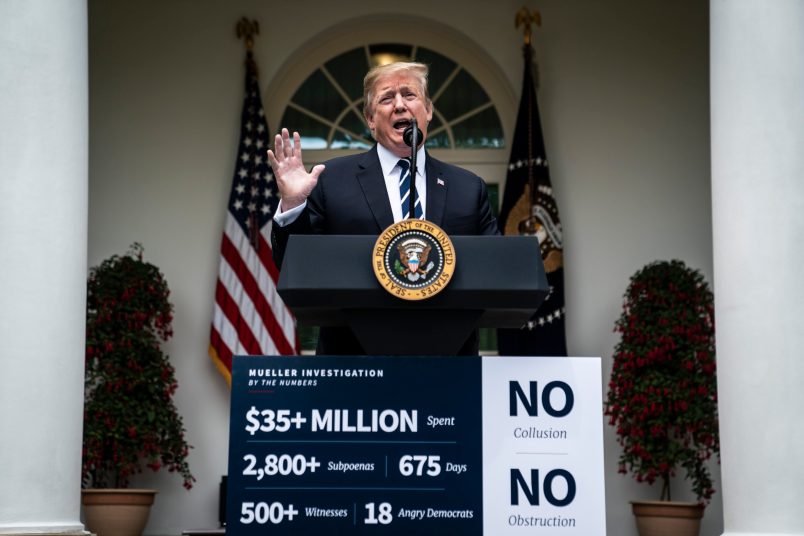A panel of D.C. appeals court judges may be setting the stage to throw out former President Trump’s Jan. 6 records case.
In a Tuesday evening filing, the D.C. federal appeals panel told lawyers on both sides of the case, in which Trump is trying to block Congress from accessing White House records relating to Jan. 6, to prepare to argue over whether the court even had a basis to weigh in on the question.
NBC first noted the filing.
In the order, the three-judge panel said that attorneys for Trump, the House Jan. 6 Committee, and the National Archives needed to be ready to argue over whether the court had jurisdiction to decide any of Trump’s claims.
It’s a threshold question that may signal skepticism on the part of the court towards the lawsuit. That skepticism would be echoed by many experts in the field, who told TPM last month that Trump’s claims in the lawsuit were absurd enough to allow the courts to reject the suit on threshold questions alone.
Trump sued to block the subpoena in October, arguing that as a former president, he had the right to assert executive privilege over documents generated during his presidency. The former president is seeking an order that would block the National Archives, the recipient of the subpoena, from complying with it.
And though the argument itself has been treated with derision — including by a D.C. district judge who ruled against Trump this month — it opens up the possibility for new legal understanding to be created in the area of executive privilege, potentially hacking a path open for former presidents to shut down investigations into actions undertaken while they were in office.
In the Tuesday order, the D.C. appeals court told lawyers to be prepared to answer whether the Presidential Records Act, which governs the release of White House records, contains a provision that would obviate the court’s ability to address
“Does the provision in the Presidential Records Act providing that the Archivist’s ‘determination whether access to a Presidential record … shall be restricted … shall not be subject to judicial review, except as provided in subsection (e) of this section’ … implicate this court’s or the district court’s jurisdiction in this case?” the order reads.
The court also asked a follow-up question: what effect would those provisions in the law have on the court’s jurisdiction to respond to Trump’s claim?
Oral arguments in the case are scheduled for Nov. 30.
The Jan. 6 panel’s investigation continues apace, though lawmakers on the committee have said that they anticipate concluding it by spring 2022.
Read the filing here:



